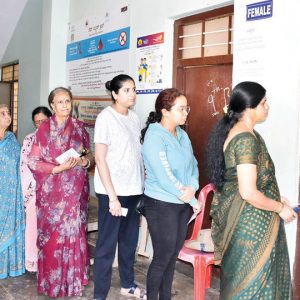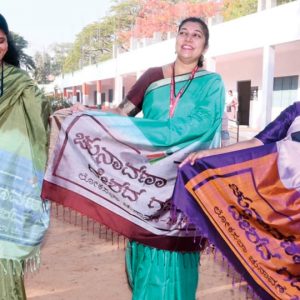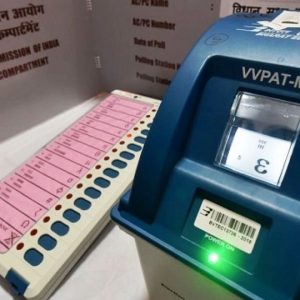Out of the multitude of pre-occupations of the land’s people at large and their periodically elected representatives vying for (a) Tickets for contesting in the polls to the various bodies of law-making and administration, (b) Scrambling for a berth in the Cabinet of Ministers, salivating for unlimited scope for getting rich through unethical means, barring exceptions (?), (c) Lobbying for plum portfolios and (d) Cementing the pathway for prolonging this a-to-d sequence as it were, two frequently figuring obsessions are chosen for this column, namely, (i) Language and (ii) Caste. The pursuit of the cause of respective different languages, spoken by people of different regions of the country, has its origins in the Constitutional amendment resulting in the Official Languages Act 1963, correcting the Article 343 of the Indian Constitution which stated that the official language of the Union (the Nation) should become Hindi in Devanagari script instead of the extant English. The Act recognised 21 other major languages in India including Sanskrit and English, Kannada as well.
Hindi, often being glorified as Rashtrabhasha, is not the National Language of India, despite misconceptions among the people. The Constitution of India does not sanction any language the status of National Language. Eighth Schedule of the Constitution lists 22 languages. In addition, Government of India awarded the distinction of Classical Language to six languages namely Tamil (2004), Sanskrit (2005), Telugu (2008), Kannada (2008), Malayalam (2013) and Odiya (2014).
While (a) Antiquity of literature with recorded history over a period of 1500-2000 years, (b) Body of ancient texts and (c) Literary tradition free from another tongue happens to be the criteria adhered to by the Government of India to determine eligibility of language to be bestowed classical language status, allegations of discrimination against one or the other of the six languages mentioned earlier continue to be aired in many circles, including various agencies pursuing the cause of Kannada. The latest such voice, as reported in a section of the press this week, features Kannada teachers from five districts condemning the relegation of Kannada to the “Modern Indian Languages” category under the new choice-based credit system adopted by the University of Mysore. Suffice to say, the path to sustain the classical language status shall not be paved with staging public outcry but in creating classy literature.
Now, the other obsession, namely caste, which is the preoccupation of India’s politicos, more so, those in public view in Karnataka, one cannot miss the drama being played by them, namely, talk against caste system while religiously adhering to the system in all their public acts. The people have chosen to be treated as suckers in the process.








Recent Comments